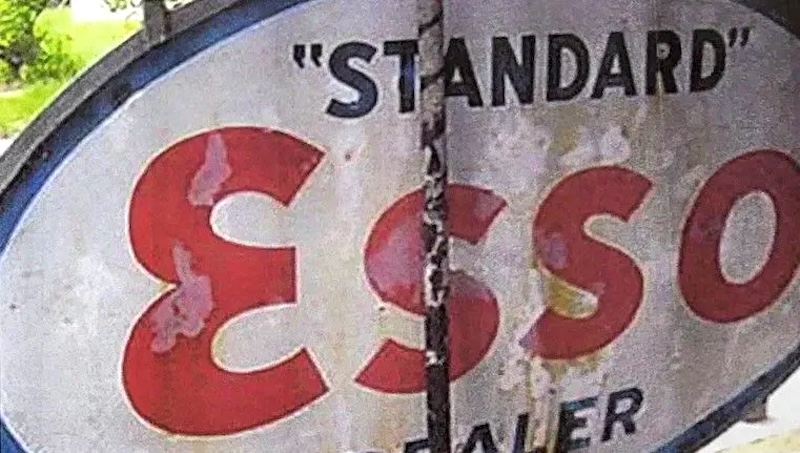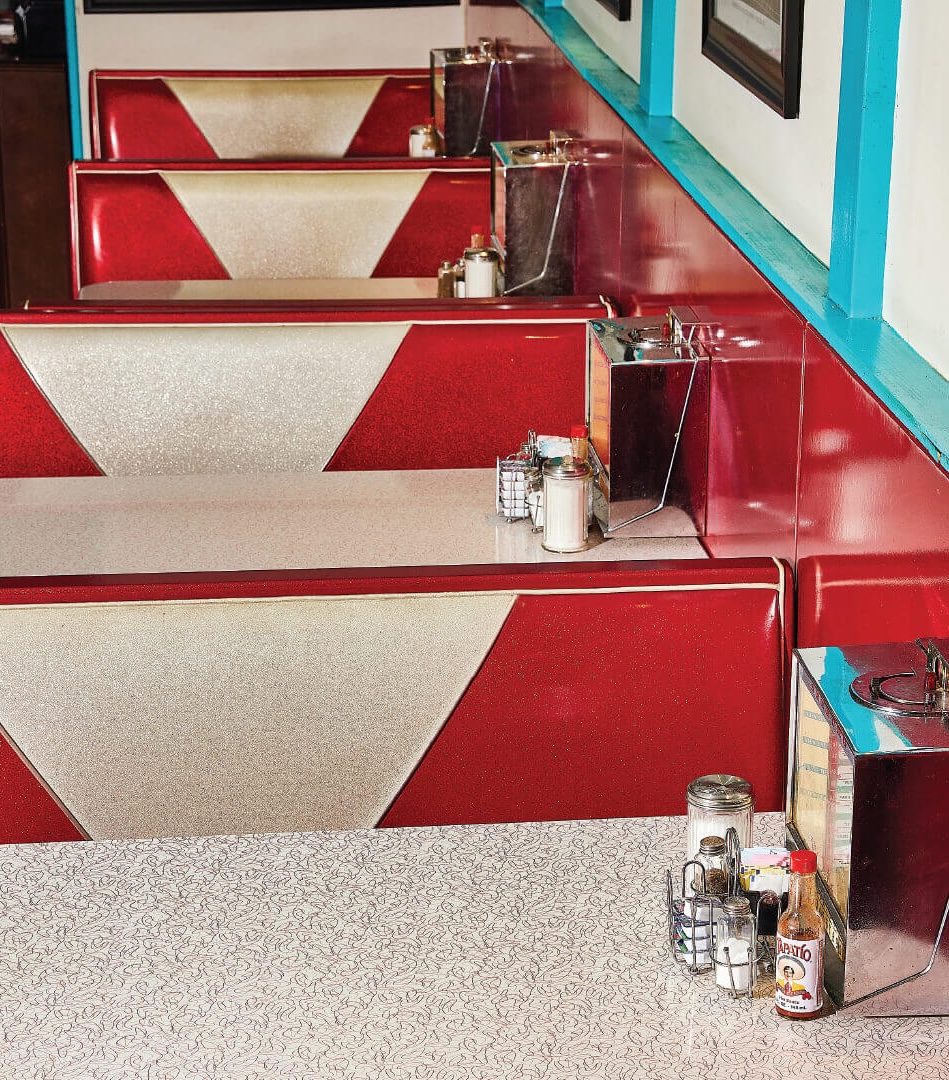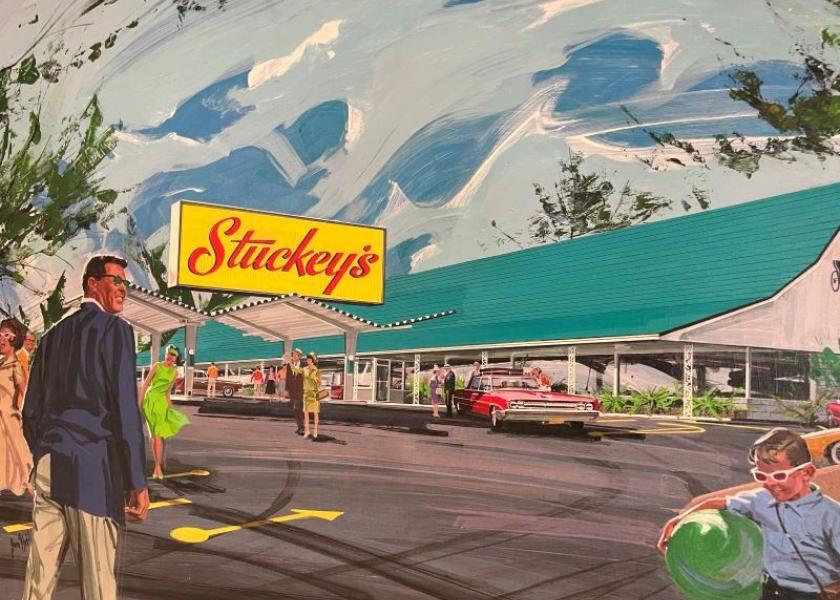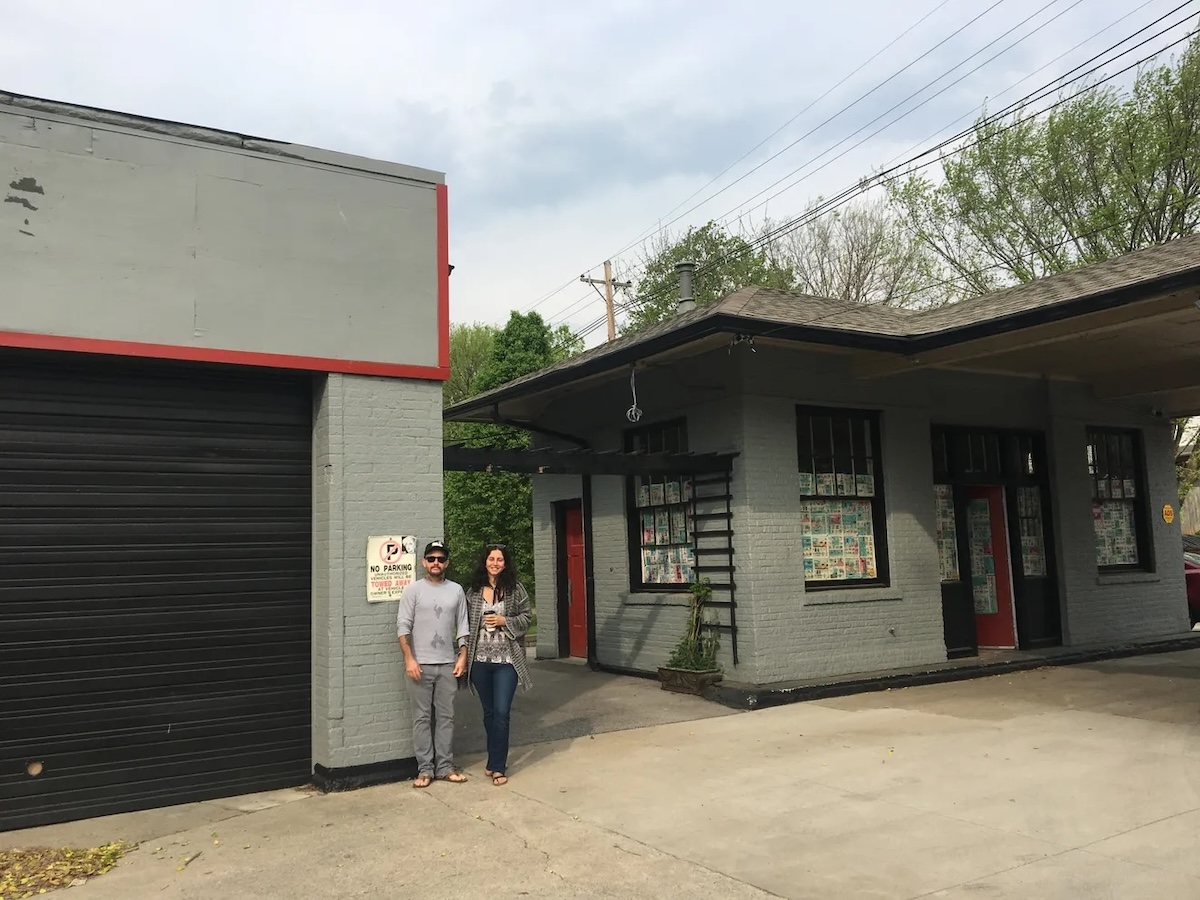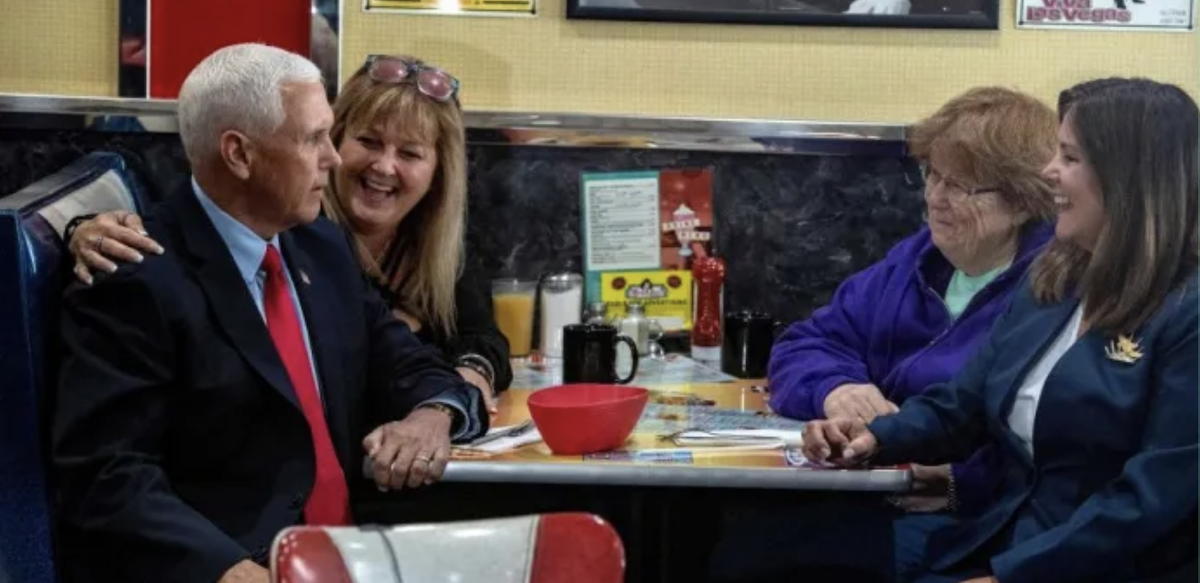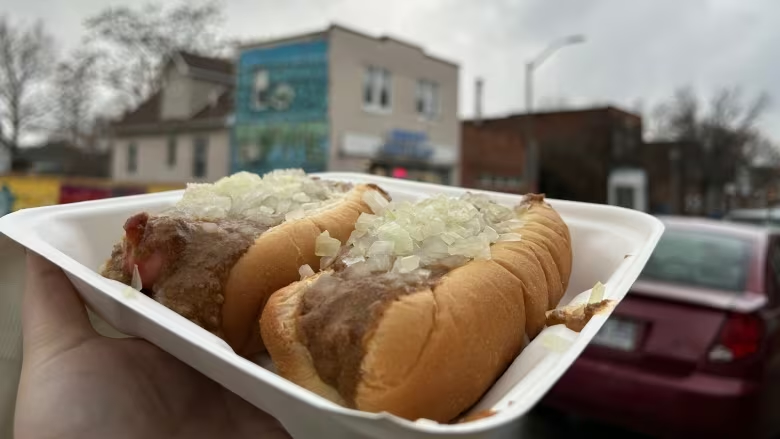Stolen vintage signs from Preston County worth thousands found in Kanawha; more signs missing
A vintage sign stolen from Preston County, West Virginia, is pictured. (Kanawha County Sheriff’s Office)
From WCHS: KANAWHA COUNTY, W.Va. — Deputies are asking for the public’s help after vintage signs worth thousands of dollars were stolen in Preston County, West Virginia, and found in Kanawha County.
Two of six signs stolen from Westbrook’s Esso in Preston County in June 2023 have been located in Kanawha County, leading investigators to seek the public’s help finding the remaining missing items, a news release from the Kanawha County Sheriff’s Office said.
The Enduring Joy Of Baltimore’s Old-School Eateries
From Baltimore Magazine: Walk into a diner and you feel like you’ve entered a museum of Americana, a roadside portal to the repeating coffee cups, breakfast plates, slices of pie, and inviting Naugahyde booths that form a timeless, comforting network across the country. There’s a reason politicians invariably head to diners when they want to connect to actual people. The diner counter is the caffeinated version of the neighborhood bar, where you can sit with a refillable mug and talk up your server or your neighbor over a plate of eggs and home fries, a short stack, and a side of bacon, and feel somehow at home, whatever time it is, and wherever you are.
The history of the diner began not in Baltimore, filmmaker Barry Levinson notwithstanding, but 370 miles up I-95 in Providence, R.I. There, in 1872, the first horse-drawn “night lunch wagon” served hot, cheap food to overnight workers, newspapermen, and any hungry soul who was up too late—or too early.
Iconic Holiday Road Trip Stop Returns to Its Georgia Pecan Farm Roots
A few decades back, stopping at a Stuckey’s during a holiday road trip wasn’t uncommon. (Stuckey’s)
From Agweb.com: Dashing through the snow in a front-wheel drive sleigh … the seasonal holiday road trip is a right of passage for many families. At one time, the roadside icon Stuckey’s was often a likely stop.
“At our peak, we had 368 stores in 40 states,” says Stephanie Stuckey, current chair of the Stuckey’s Corporation. “Stuckey’s really is synonymous with the road trip, during what I consider the era of the great American Road Trip, which would have been the 1950s to the 1970s.”
The roadside oasis, and its iconic pecan candies, are woven into the fabric of highway history.
8 former gas stations transform into bars, restaurants and shops in Louisville
Natasha Sud and Gerald Dickerson pose outside of an old filling station at 950 Barret Avenue. This June they’re planning to reopen the space as a bar and boutique mashup. Maggie Menderski, Louisville Courier Journal
From the Louisville Courier Journal: In the summer of 2022, a rundown and out-of-use auto shop in Jeffersontown was given new life and repurposed into Above the Dirt Garden Shop.
The plant shop, which sells houseplants, non-invasive and native landscaping, and offers gardening classes, is located just off the Gaslight Square in the heart of J-Town, an area saturated with automotive-related businesses.
Paula Henson, the owner of Above the Dirt Garden Shop, says the space used to be a Shell gas station in the 1950s and 1960s, then it was converted into a BP full serve before being made into a U-Haul facility, then a Brakeway and then a locally owned car repair shop.
When politicians visit diners, who are they trying to reach?
Before dropping out of the race in October, former US Vice President Mike Pence (left) visited a New Hampshire diner while campaigning to become the 2024 GOP presidential nominee. Joseph Prezioso/AFP via Getty Images
From Marketplace: It’s become a political cliché: Candidates make a stop at a local diner, sometimes grab a bite, and locals get some facetime.
“I think we all know that politicians going to diners, talking to ‘regular people,’ this is such a hallmark of the campaign process now,” said Jaya Saxena, correspondent at Eater. Saxena saw on Twitter last year that New York Governor Kathy Hochul had visited a Long Island diner while on the campaign trail, and that piqued her interest in who was actually eating at these restaurants.
“I looked at the menu and just realized, this is expensive,” said Saxena. “And so to me, that did not feel like a place where ‘everyone’ was welcome.”
Saxena wrote about the history of diners, where she looked at how that diner myth came to be — and whether it’s true in practice. She spoke to “Marketplace” host Kimberly Adams about the essay; the following is a transcript of their conversation, edited for clarity.
What’s a coney dog and why do Windsorites love them? These pros say it’s in our history
A coney dog is a hotdog topped with a chili-like sauce, yellow mustard and diced white onion. (Kathleen Saylors/CBC )
From CBC: It’s a messy concoction of chili-like sauce, bright yellow mustard and finely diced white onion. It’s best eaten with a napkin or five, and it’ll probably end up spilled down your shirt.
It’s a coney dog, a beloved fixture of Detroit — and Windsor, Ont. — cuisine.
But its history and enduring popularity is a little hazy, even as two coney dog shops opened within a block of each other in Windsor this year.
“I got interested when I was about eight,” said Dave Liske, author of The Flint Coney: A Savoury History.



